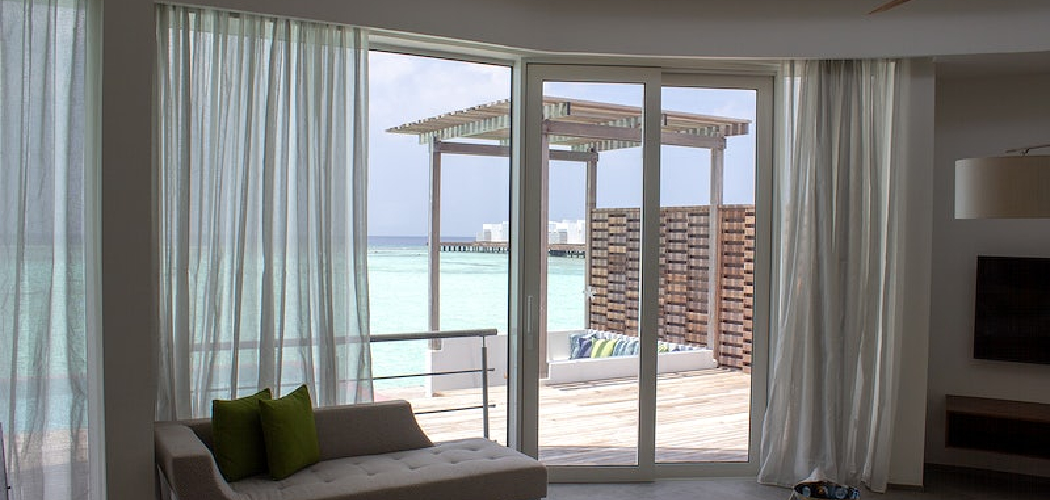Are you hearing an excessive amount of sound coming through your sliding glass door? Do you ever get so distracted by the occasional sounds coming in through your sliding glass door? Installing soundproofing materials may be the solution to reducing outside noises and creating a more serene environment inside your home.
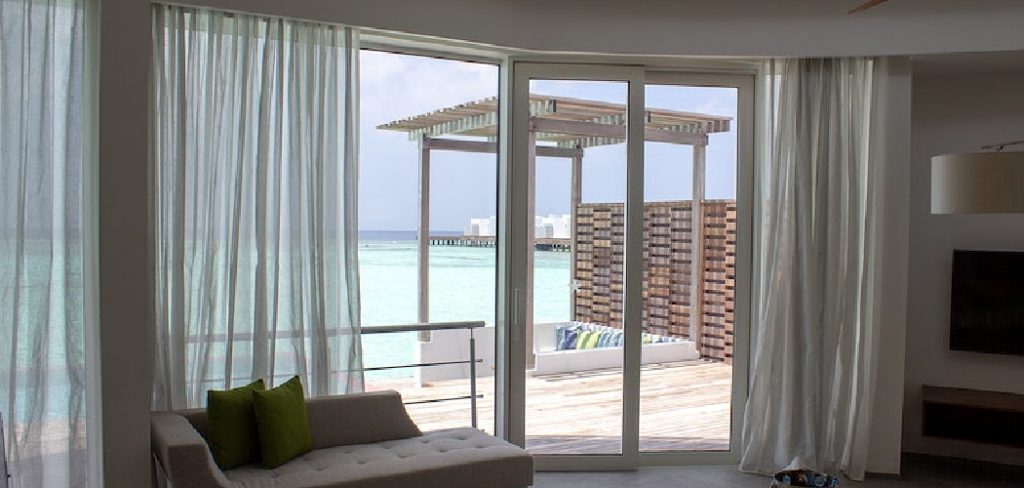
Not only is soundproofing helpful in reducing noise from outdoors, but it can also help create peace and privacy between rooms of the house. In this blog post, we’ll go over the basics of how to soundproof a sliding glass door so that you can enjoy a quieter space without too much fuss! So keep reading to learn how with our comprehensive guide on soundproofing a sliding glass door!
The Benefits of Soundproofing a Sliding Glass Door
Installing soundproofing materials in a sliding glass door can provide many benefits. Here are some of the advantages that come with soundproofing:
1. Reduced outside noise
Soundproofing creates an insulation barrier between the inside and outside of your home, reducing or eliminating unwanted outdoor noises. This is especially beneficial if you live near a busy street or noisy area.
2. Increased privacy
Soundproofing also can help keep conversations inside the home from being heard outside. Since soundproofing eliminates noises traveling through walls, it can be a great way to ensure that your living space is as private as possible.
3. Added peace and tranquility
Having a peaceful environment in your home is essential for relaxation and stress relief. By reducing the amount of outside noise, soundproofing can help create a tranquil atmosphere inside your home.
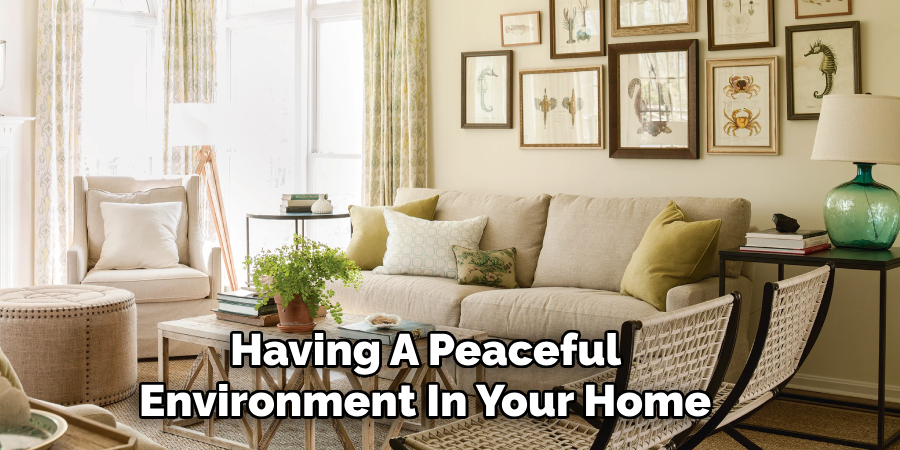
Required Items
Before beginning the process of soundproofing a sliding glass door, you’ll need to have the items listed below:
- Soundproof insulation material (such as fiberglass or foam)
- Foam tape
- Industrial adhesive spray
- Acoustical sealant and caulk gun
- Utility knife
- Ladder
- Safety glasses
10 Steps Guide on How to Soundproof a Sliding Glass Door
Now that you have the necessary items let’s begin soundproofing your sliding glass door! Follow along with the steps below for an easy and efficient way to do this project.
Step 1: Measure the Door
The first step is to measure the size of the door to determine how much soundproofing material you’ll need. Make sure to measure length, width, and height for accuracy.
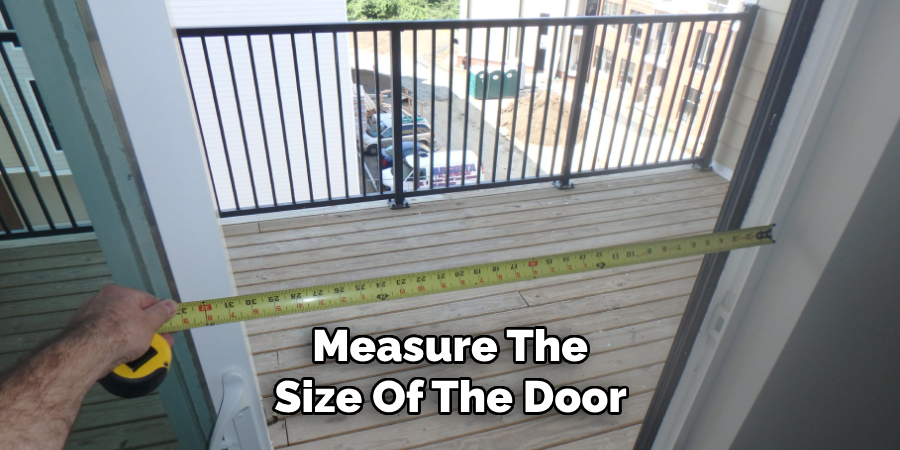
Step 2: Cut the Soundproof Material
Once you’ve got your measurements, cut the soundproof insulation material according to size. Don’t forget to add a little extra so that it can be properly secured inside the frame of the door.
Step 3: Apply Foam Tape
Next, apply foam tape to the edges of the frame where you’ll be placing the soundproofing material. This will help to secure it and make sure that no air gaps are left in between.
Step 4: Insert Soundproof Material
Carefully insert the soundproof material into the frame, making sure to press it firmly against the foam tape. Inserting the material with a partner can make this process easier.
Step 5: Secure Soundproof Material with Tape
Once you’ve inserted all of the soundproofing material, use tape to secure it in place so that it doesn’t move around. Securing the material is essential to ensure that it’s effective.
Step 6: Spray Industrial Adhesive
Spray an industrial adhesive around the frame of the door and on top of the soundproofing material. This will help keep it secured in place and reduce drafts coming through.
Step 7: Caulk Around Frame
Using a caulk gun, apply acoustical sealant around the frame of your sliding glass door to provide an extra layer of insulation. This will help block out any air gaps and noises coming in through the sides of the door.
Step 8: Let Caulk Dry
Allow for the caulk to dry before proceeding with step 9. You’ll know the caulk has dried when it is no longer wet and has turned a light grey color.
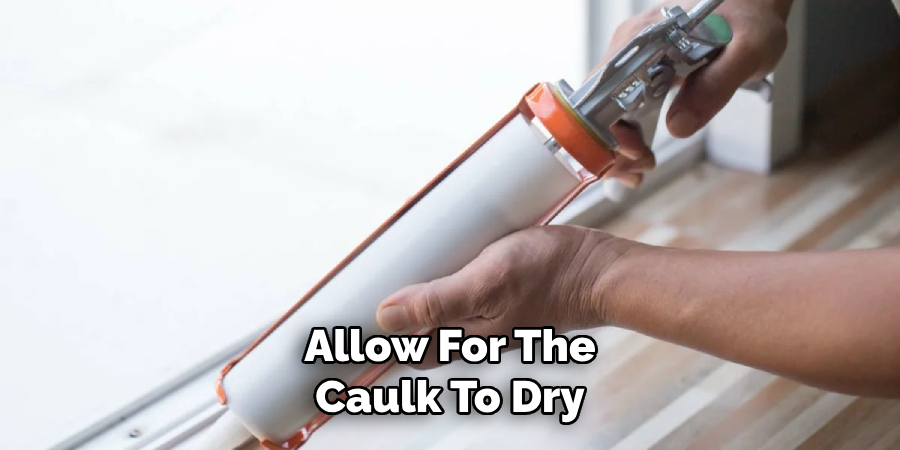
Step 9: Use Utility Knife to Trim Excess Material
If there is any excess soundproof material or caulk, use a utility knife to trim it off and create a neat finish around the frame of the door.
Step 10: Check the Door for Leaks
Once your door is soundproofed, you should check for any air gaps or leaks that might be letting in noise. If there are any, simply fill them in with more caulk and let them dry before testing again.
And finally, your soundproof sliding glass door is complete! With a few simple steps on how to soundproof a sliding glass door, you can now enjoy the peace and quiet of your home without any unwanted noises.
8 Safety Measures to Follow When Soundproofing a Sliding Glass Door
Are you looking for ways to reduce the level of sound passing through your sliding glass door? You’ve come to the right place. We have 8 safety measures that you should be aware of before getting started with your project.
- Before starting any work, always make sure to shut off the power to the door and any other electrical appliances near it.
- Make sure you’re wearing protective eye goggles whenever you’re working with power tools or using hand tools that could cause injury if not used properly.
- When cutting materials, always use a sawhorse or other support structure to make sure you have a stable area for your work. Also, never use your hands to hold the material you’re cutting.
- Keep an eye on any exposed wires and avoid contact with them. If you need to move them, either do it yourself or hire an electrician for help. Keeping yourself and your property safe should always be a top priority.
- Make sure the area is well-ventilated when working with adhesives or other hazardous materials. If the area is not properly ventilated, you could become ill from the fumes.
- Make sure your ladder or other support structure is securely fastened and that it can support your weight safely before climbing up to start working on your soundproofing project.
- Wear appropriate safety gear, such as gloves and breathing masks, when using tools such as saws or heavy equipment.
- Take regular breaks to ensure that you are working in a safe and comfortable environment. This is especially important if you’re working on a large-scale project or have been working for an extended period of time.
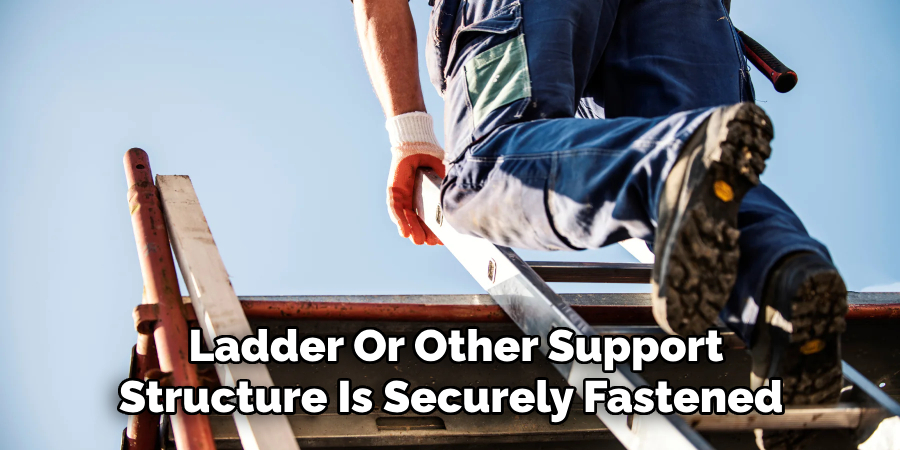
Soundproofing your sliding glass door can be a rewarding experience if done correctly and with safety as the top priority. Following these 8 safety measures on how to soundproof a sliding glass door will help you to make sure your project is a success and that you’re keeping yourself and others safe while doing so.
Additionally, we recommend reaching out to an insulation or soundproofing expert for advice if you’re considering a large-scale soundproofing project. They will have the know-how to ensure that your project is done correctly and with safety in mind.
6 Common Mistakes to Avoid When Soundproofing Sliding Glass Doors
Sliding glass doors are commonly used for their versatility and aesthetic appeal, but they can also be a source of unwanted noise. If you find that soundproofing your home to reduce outside noise is necessary, understanding the basics of how to properly soundproof a sliding glass door is key. Here are some common mistakes to avoid when soundproofing a sliding glass door:
- A common mistake is to focus on insulating only the door itself and neglecting to insulate the frame around it. This can leave a gap in your soundproofing efforts that could allow noise ingress or egress, so make sure you completely seal off all areas of the door frame.
- Applying insulation, weatherstripping, or anything else to the actual glass of the door is not recommended, as it can damage and weaken the glass over time.
- As with any soundproofing endeavor, using multiple layers of materials is important for maximum effectiveness. Don’t forget to add a layer between your insulation and the door frame itself.
- Don’t neglect to also insulate any gaps that may exist between the sliding door and other walls, windows, or doors. Any space where sound can travel should be sealed off with insulation and weatherstripping for maximum soundproofing effect.
- Make sure there is enough clearance in your track so that your insulation doesn’t get crushed or misshapen when the door is opened and closed.
- Avoid using low-quality insulation materials such as fiberglass, as this offers minimal soundproofing effects. Instead, use a more effective material like foam or acoustic panels to ensure you are getting the best soundproofing benefits possible.
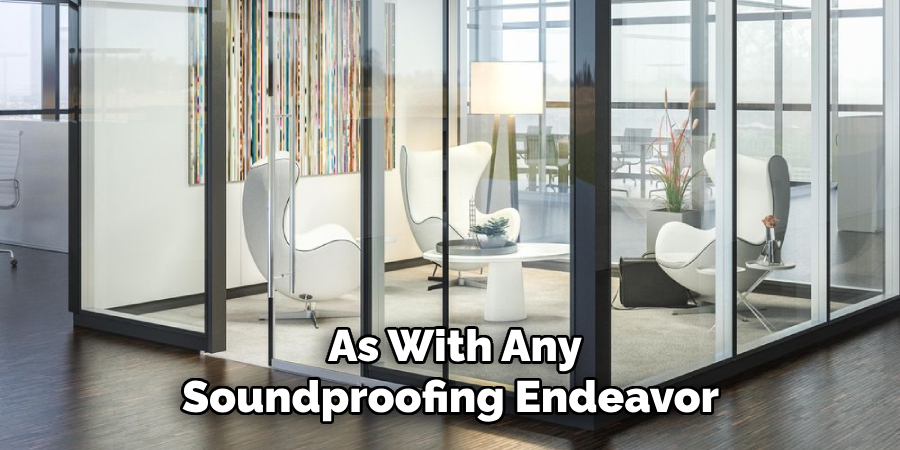
Frequently Asked Question
How Much Will It Cost?
It really depends on the materials you choose. The most cost-effective solution is to add mass to the glass, which can be done with heavy drapes or blackout blinds; this will typically cost between $50 and $150.
If you want something more permanent, a layer of acoustic foam panels would cost around $200-$400. Finally, if you are looking for a professional solution, you can get the acoustic glass installed, which will cost around $500-$1000.
Does Adding Mass Help?
Yes! One of the most effective ways to reduce sound coming through sliding glass doors is to add mass to them. This doesn’t mean you need to cover them in insulation or anything like that; even a heavy set of drapes can help reduce sound levels significantly. Adding mass to the glass helps absorb and dissipate sound waves, which reduces their impact when they hit the other side.
Are There Other Solutions?
Aside from adding mass, there are other solutions available too. For example, you could install acoustic seals around the frame of your door, which will help stop sound from escaping or entering. You could also install acoustic panels on the inside and outside of the door to help absorb sound, as well as apply a soundproofing material to the edges of the glass.
What About Professional Solutions?
If you want a professional solution, you could have acoustic glass installed. This is a special glass that has been designed to reduce noise and is often used in recording studios or movie theaters. It’s expensive, but it will definitely reduce sound levels significantly.
Is This Something I Can Do Myself?
Yes! With a few tools and materials, you can easily soundproof your sliding glass door yourself. If you’re looking for a more permanent solution, such as acoustic glass, you should consult a professional. But if you’re looking for something simpler and cost-effective, then soundproofing your sliding glass door is something that you can do yourself.
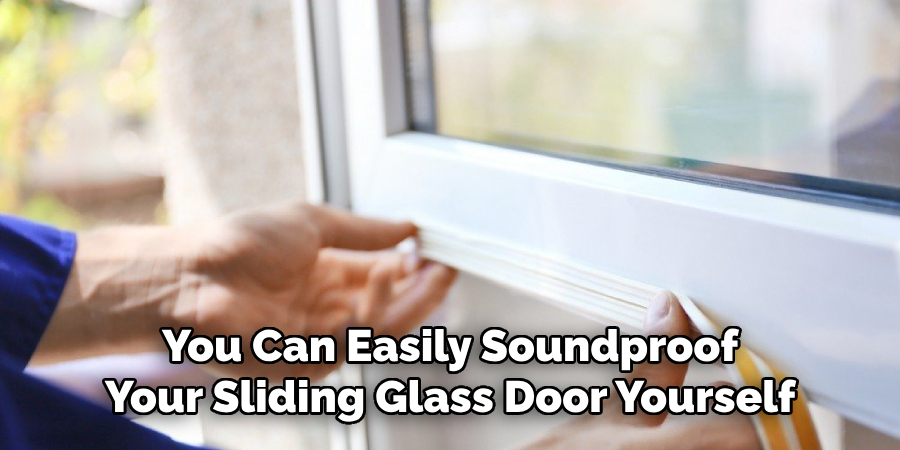
Is Soundproofing Worth It?
The short answer is yes! Soundproofing your sliding glass door will help create a quieter and more peaceful home, which is definitely worth it. Plus, if you have neighbors that are particularly loud or live on a busy street, then soundproofing can be essential for reducing noise levels. So yes – soundproofing your sliding glass door is worth it!
Conclusion
Soundproofing a sliding glass door can be an intimidating prospect for many homeowners, but as you have seen in this blog post, it is certainly achievable with the right precautions, products, tools, and knowledge on how to soundproof a sliding glass door.
Working with a qualified soundproofing contractor will ensure that your soundproofing project is done correctly and effectively, so don’t hesitate to call one in should you need assistance.
After all of the hard work has been finished, you will notice incredible improvements in the way sounds from outside are blocked out of your home – while keeping it looking beautiful at the same time! Not only will you collect invaluable peace and quiet to enjoy within your abode but also energy savings from better insulation. You’ll never regret taking the time to soundproof this particular entryway.
